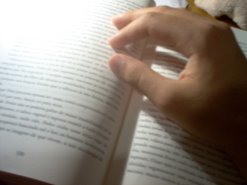Men make their own history, but they do not make it just as they please; they do not make it under circumstances chosen by themselves, but under circumstances directly encountered, given, and transmitted from the past. The tradition of all the dead generations weighs like a nightmare on the brain of the living. And just when they seem engaged in revolutionizing themselves and things, in creating something that has never existed, precisely in such periods of revolutionary crisis they anxiously conjure up the spirits of the past to their service and borrow from them names, battlecries, and costumes in order to present the new scene of world history in this time-honoured disguise and this borrowed language. Thus Luther donned the mask of the Apostle Paul, the Revolution of 1789 to 1814 draped itself alternatively as the Roman republic and the Roman empire, and the Revolution of 1848 knew nothing better to do than to parody, now 1789, now the revolutionary tradition of 1793 to 1795. In like manner a beginner who has learnt a new language always translates it back into his mother tongue, but he has assimilated the spirit of the new language and can freely express himself in it only when he finds his way in it wihout recalling the old and forgets his native tongue in the use of the new.
Subscrever:
Enviar feedback (Atom)


Sem comentários:
Enviar um comentário